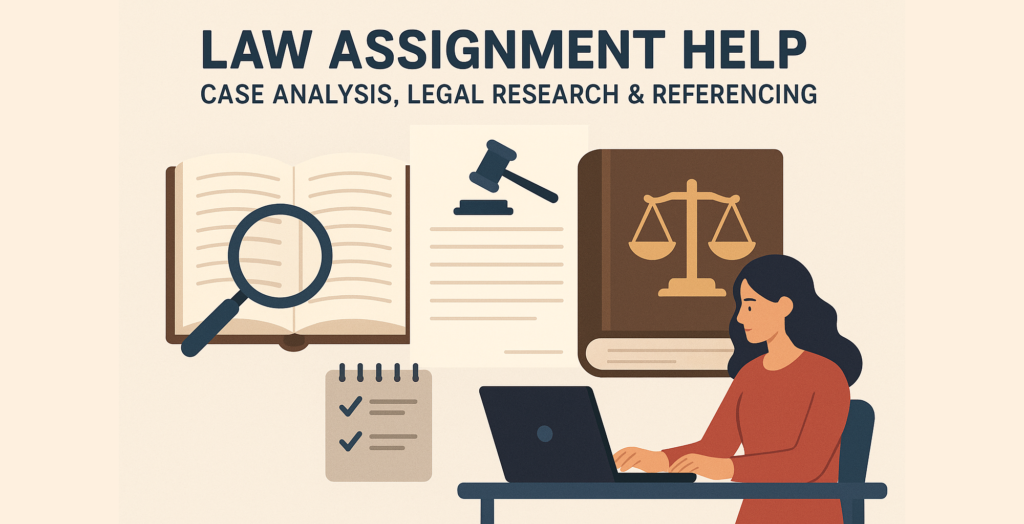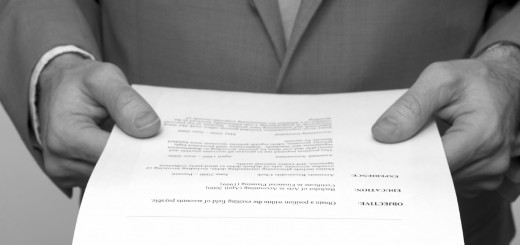Law Assignment Help: Case Analysis, Legal Research & Referencing
Law students often find themselves buried in books, cases, and never-ending assignments. If you’re one of them, you already know—it’s not just about reading thick textbooks. It’s about understanding real legal problems, analyzing cases, doing research from proper sources, and, of course, referencing everything correctly.
And honestly, that can feel like too much at once. Even if you love the subject, the workload can drain you. This is where Law Assignment Help comes in handy. With a bit of guidance, students save time, avoid common mistakes, and write better assignments that professors actually appreciate.

Why Law Assignments Can Be So Tough
Law isn’t like most other fields. You can’t just memorize definitions and expect to pass. A law assignment usually expects you to:
-
Break down tricky cases and explain the logic behind them.
-
Support your argument with laws, precedents, and academic opinions.
-
Use the exact referencing style your university wants—whether it’s AGLC, OSCOLA, or something else.
Sounds okay in theory, but when you sit down to write, suddenly it doesn’t feel that simple. For example, you may know what the case Donoghue v Stevenson is about, but putting it into a well-structured answer without copying from somewhere else? That’s where students often struggle.
Case Analysis: More Than Just Retelling
One of the most common tasks in law school is analyzing a case. But many students make the mistake of summarizing the story instead of actually analyzing it. Professors don’t want a history lesson—they want you to show that you can think like a lawyer.
A good way to approach it is by breaking it down step by step:
-
Mention the case name and year (so the reader knows exactly what you’re talking about).
-
State the facts briefly—don’t get lost in unnecessary details.
-
Point out the legal issue (what question was the court trying to answer?).
-
Summarize the court’s decision.
-
Then—and this is the key—explain how it connects with the assignment question you’ve been asked.
It’s like solving a puzzle. You’re not just retelling what happened; you’re showing why it matters. Students who skip that last step often lose easy marks.
Legal Research: The Backbone of Every Assignment
Without proper research, law assignments fall flat. Professors can easily tell when a student hasn’t gone beyond the textbook. Research means checking past cases, journals, legislation, and sometimes even online legal databases.
But here’s the problem—where do you start? If you just Google things, you’ll waste hours reading unreliable websites. For example, some blogs explain contract law in plain English, but they’re not academic sources, so quoting them won’t earn you any points.
This is why many students turn to experts for guidance. Legal researchers know how to pick the right sources in less time. Instead of reading 20 random articles, you could use 3 or 4 strong references that support your argument. It’s about working smarter, not harder.
Referencing: The Detail That Can Make or Break Grades
Here’s something frustrating—you could write the most brilliant assignment, but if your referencing is off, your professor might still mark you down. Law schools are strict about this.
Different universities use different systems, and each has its own rules. For example:
-
In Australia, many law schools expect AGLC referencing.
-
In the UK, OSCOLA is more common.
-
Some assignments may still ask for Harvard or APA, depending on the format.
And the annoying part? Even a tiny mistake—like missing italics or the wrong punctuation—can cost you marks. For instance:
-
Correct AGLC: Mabo v Queensland (No 2) (1992) 175 CLR 1.
-
Wrong: Mabo v Queensland 1992 CLR 175.
One small detail, but it changes everything. That’s why having someone check your referencing can be a life-saver.
How Law Assignment Help Actually Supports Students
Now, some students hesitate to ask for help because they think it’s “cheating.” But that’s not the case. Good assignment help isn’t about writing everything for you—it’s about guiding you to write smarter.
Here’s how it usually helps:
-
Breaking down complex cases so you don’t feel lost in legal jargon.
-
Showing you where to research, instead of wasting hours on unreliable sites.
-
Checking referencing so you don’t lose silly marks.
-
Saving time, which is honestly priceless during exam season.
-
And, most importantly, helping you understand how to write like a law student, not just a note-taker.
With this kind of support, you don’t just submit a better assignment—you also pick up skills that make future work easier.
Simple Tips to Improve Your Own Writing
If you’d rather handle assignments on your own, here are a few things that make a real difference:
-
Read the assignment question twice before starting. Many mistakes happen because students misread the task.
-
Break your answer into sections. An essay without structure is harder to read.
-
Use headings where possible—it makes your work look professional.
-
Always back up claims with evidence (a statute, a case, or a journal).
-
Don’t copy. Paraphrase, but still cite the source.
-
Leave time to proofread. A small spelling mistake might look unprofessional.
These may sound basic, but surprisingly, most lost marks come from ignoring these little things.
Wrapping Up
Law assignments aren’t just about filling pages. They’re about showing that you can think critically, analyze cases, and apply the law correctly. That’s why case analysis, research, and referencing are such big parts of every paper.
But let’s be real—it’s not always easy to do it all on your own. When you feel stuck or short on time, getting Law Assignment Help can make life much easier. You learn how to approach your work properly, save time, and avoid common mistakes that cost grades.



